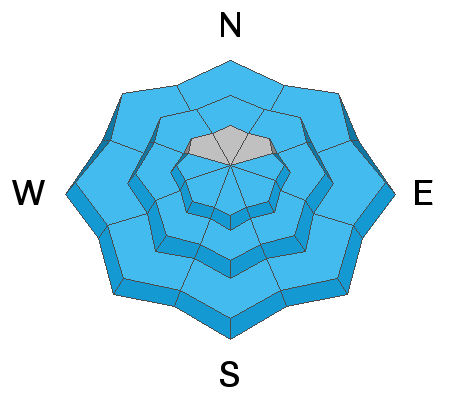Forecast for the Provo Area Mountains

Issued by Greg Gagne on
Friday morning, April 2, 2021
Friday morning, April 2, 2021
The avalanche danger will quickly rise to MODERATE as the snow becomes wet under the strong sunshine and very warm temperatures. Wet avalanches may be both natural and human-triggered and occur on east, south, and west aspects, as well as northerly aspects, especially at the low and mid-elevations.
Timing is everything - move off of and out from underneath steep slopes once the snow surface becomes wet and unconsolidated.

Low
Moderate
Considerable
High
Extreme
Learn how to read the forecast here







